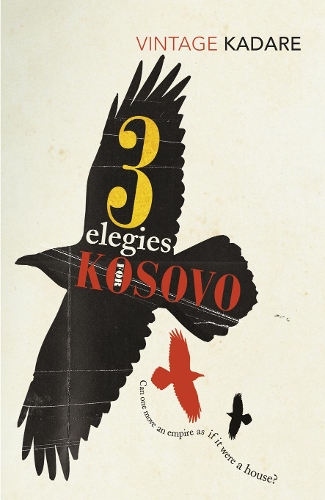
Three Elegies For Kosovo
(Paperback)
Publishing Details
Three Elegies For Kosovo
By (Author) Ismail Kadare
Translated by Peter Constantine
Vintage Publishing
Vintage Classics
15th June 2011
5th May 2011
United Kingdom
Classifications
General
Fiction
891.9913
Physical Properties
Paperback
96
Width 127mm, Height 198mm, Spine 7mm
76g
Description
In three short narratives, Kadare evokes a defining moment in European history 28 June 1389, the Field of the Blackbirds. A Christian army made up of Serbs, Bosnians, Albanians and Romanians confront an Ottoman army. In ten hours the battle is over, and the Muslims possess the field; an outcome that has haunted the vanquished ever since. 28 June 1989, the Serb Leader Slobodan Milosevic launches his campaign for a fresh massacre of the Albanians, the majority population of Kosovo. In three short narratives Kadare shows how legends of betrayal and defeat simmered in European civilisation for six hundred years, culminating in the agony of one tiny population at the end of the twentieth century.
Reviews
The main goal of these three fables ... is to transmit a message about freedom, in the sense that to write truthfully is to set something free. In this book Kadare has set Kosovo, the battle, the myth, free from the chains of untruth * London Review of Books *
The bridge is a foreboding, an omen, a threat. It is a bridge over which Asia will invade Europe and the future will invade the past. Kadare, an Albanian, has used the materials at hand to become one of Europe's great writers * Los Angeles Times *
An utterly captivating yarn: strange, vivid, ominous, macabre and wise * New York Times *
Author Bio
Ismail Kadare, born in 1936 in the mountain town of Gjirokaster, near the Greek border, is Albania's best-known poet and novelist. Since the appearance of The General of the Dead Army in 1965, Kadare has published scores of stories and novels that make up a panorama of Albanian history linked by a constant meditation on the nature and human consequences of dictatorship. His works brought him into frequent conflict with the authorities from 1945 to 1985. In 1990 he sought political asylum in France, and now divides his time between Paris and Tirana. He is the winner of the first ever Man Booker International Prize.
